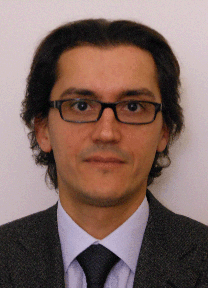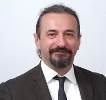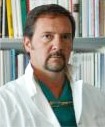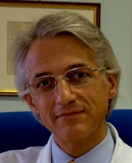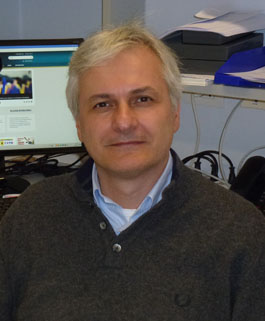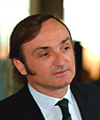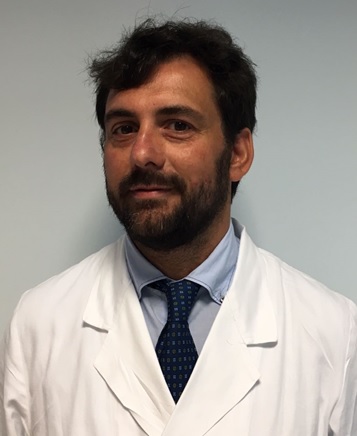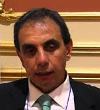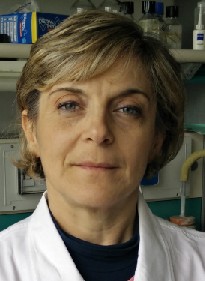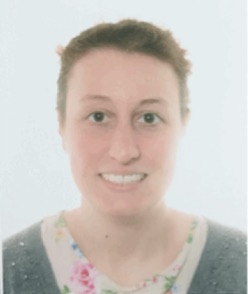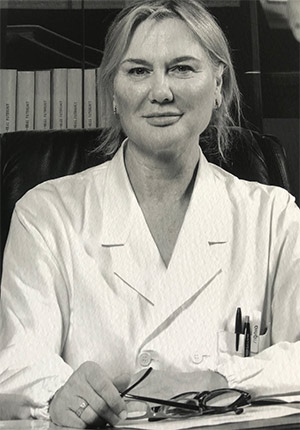Studying at the University of Verona
Academic calendar
The academic calendar shows the deadlines and scheduled events that are relevant to students, teaching and technical-administrative staff of the University. Public holidays and University closures are also indicated. The academic year normally begins on 1 October each year and ends on 30 September of the following year.
Course calendar
The Academic Calendar sets out the degree programme lecture and exam timetables, as well as the relevant university closure dates..
| Period | From | To |
|---|---|---|
| LEZIONI 1° E 2° SEMESTRE (INSEGNAMENTI ANNUALI) | Oct 4, 2021 | May 27, 2022 |
| LEZIONI 1° SEMESTRE 2°-3°-4°-5°-6°ANNO | Oct 4, 2021 | Dec 23, 2021 |
| LEZIONI 1° E 2° SEMESTRE 1° ANNO (INSEGNAMENTI ANNUALI) | Oct 18, 2021 | May 27, 2022 |
| LEZIONI 1°SEMESTRE 1° ANNO | Oct 18, 2021 | Dec 23, 2021 |
| LEZIONI 2°SEMESTRE | Feb 14, 2022 | May 27, 2022 |
| Session | From | To |
|---|---|---|
| ESAMI DI PROFITTO SESSIONE INVERNALE A.A. 2020/2021 E 1° SEMESTRE A.A. 2021/2022 | Jan 7, 2022 | Feb 11, 2022 |
| ESAMI DI PROFITTO SESSIONE ESTIVA LAUREANDI A.A. 2021/2022 | May 31, 2022 | Jul 1, 2022 |
| ESAMI DI PROFITTO SESSIONE ESTIVA A.A. 2021/2022 | May 31, 2022 | Jul 29, 2022 |
| ESAMI DI PROFITTO SESSIONE AUTUNNALE A.A. 2021/2022 | Sep 1, 2022 | Sep 30, 2022 |
| Session | From | To |
|---|---|---|
| SESSIONE INVERNALE A.A. 2020/2021 | Mar 1, 2022 | Mar 11, 2022 |
| SESSIONE ESTIVA A.A. 2021/2022 | Jul 13, 2022 | Jul 29, 2022 |
| SESSIONE AUTUNNALE A.A. 2021/2022 | Oct 10, 2022 | Oct 21, 2022 |
| Period | From | To |
|---|---|---|
| FESTIVITA' OGNISSANTI | Nov 1, 2021 | Nov 1, 2021 |
| FESTIVITA' IMMACOLATA CONCEZIONE | Dec 8, 2021 | Dec 8, 2021 |
| VACANZE DI NATALE | Dec 23, 2021 | Jan 2, 2022 |
| VACANZE DI PASQUA | Apr 15, 2022 | Apr 19, 2022 |
| FESTA DELLA LIBERAZIONE | Apr 25, 2022 | Apr 25, 2022 |
| FESTA DEL LAVORO | May 1, 2022 | May 1, 2022 |
| FESTIVITA' DEL SANTO PATRONO SAN ZENO | May 21, 2022 | May 21, 2022 |
| FESTIVITA' DELLA REPUBBLICA | Jun 2, 2022 | Jun 2, 2022 |
| Description | Period | From | To |
|---|---|---|---|
| TIROCINIO 1° SEMESTRE | TIROCINIO 1° SEMESTRE | Oct 1, 2021 | Feb 11, 2022 |
| ATTIVITA' FACOLTATIVA O DI RECUPERO TIROCINIO | ATTIVITA' FACOLTATIVA O DI RECUPERO TIROCINIO | Oct 1, 2021 | Sep 30, 2022 |
| TIROCINIO 1° E 2° SEMESTRE (INSEGNAMENTI ANNUALI) | TIROCINIO 1° E 2° SEMESTRE (INSEGNAMENTI ANNUALI) | Oct 1, 2021 | May 27, 2022 |
| TIROCINIO 2° SEMESTRE | TIROCINIO 2° SEMESTRE | Feb 14, 2022 | Jul 22, 2022 |
Exam calendar
Exam dates and rounds are managed by the relevant Medicine Teaching and Student Services Unit.
To view all the exam sessions available, please use the Exam dashboard on ESSE3.
If you forgot your login details or have problems logging in, please contact the relevant IT HelpDesk, or check the login details recovery web page.
Should you have any doubts or questions, please check the Enrollment FAQs
Academic staff
 paolo.faccioni@univr.it
paolo.faccioni@univr.it
 045 8122470
045 8122470
 mattia.marchiori@univr.it
mattia.marchiori@univr.it
 guido.martignoni@univr.it
guido.martignoni@univr.it
 alessia.pardo@univr.it
alessia.pardo@univr.it
 0458028706
0458028706
 annarita.signoriello@univr.it
annarita.signoriello@univr.it
Study Plan
The Study Plan includes all modules, teaching and learning activities that each student will need to undertake during their time at the University.
Please select your Study Plan based on your enrollment year.
1° Year
| Modules | Credits | TAF | SSD |
|---|
2° Year activated in the A.Y. 2022/2023
| Modules | Credits | TAF | SSD |
|---|
3° Year activated in the A.Y. 2023/2024
| Modules | Credits | TAF | SSD |
|---|
4° Year It will be activated in the A.Y. 2024/2025
| Modules | Credits | TAF | SSD |
|---|
5° Year It will be activated in the A.Y. 2025/2026
| Modules | Credits | TAF | SSD |
|---|
6° Year It will be activated in the A.Y. 2026/2027
| Modules | Credits | TAF | SSD |
|---|
| Modules | Credits | TAF | SSD |
|---|
| Modules | Credits | TAF | SSD |
|---|
| Modules | Credits | TAF | SSD |
|---|
| Modules | Credits | TAF | SSD |
|---|
| Modules | Credits | TAF | SSD |
|---|
| Modules | Credits | TAF | SSD |
|---|
Legend | Type of training activity (TTA)
TAF (Type of Educational Activity) All courses and activities are classified into different types of educational activities, indicated by a letter.
Medical sciences 1st (2023/2024)
Teaching code
4S02657
Credits
14
Coordinator
Language
Italian
Location
VERONA
Courses Single
Not AuthorizedThe teaching is organized as follows:
MEDICINA INTERNA
Credits
6
Period
2°-3°-4°-5°-6° ANNO - 1° SEMESTRE
Location
VERONA
Academic staff
ATTIVITA' PRATICA IN MEDICINA INTERNA
Credits
1
Period
2°-3°-4°-5°-6° ANNO - 1° SEMESTRE
Location
VERONA
Academic staff
Learning objectives
The present course has been designed to provide fundamental knowledge about pathophysiology, clinical, diagnostic classification and therapy of diseases of relevance of Internal Medicine with particular regard to those pathologies that may present clinical manifestations also at the level of the oral cavity and / or may be connected to the dental preservative treatment or maxillofacial surgery. It is also aimed at generating knowledge about the general prerequisites and criteria for the interpretation of laboratory tests based on the concepts of normality, reference intervals, analytic and biological intra- and inter-individual variability. At the end of the course students will be able to interpret the diagnostic value of laboratory tests, in terms of specificity, sensitivity, positive and negative predictive value. PRACTICAL ACTIVITY IN LABORATORY MEDICINE MODULE Educational goals. At the end of the course the student will: 1) Will know the basic principles of laboratory methodologies in the pre-analytical phase (sampling, treatment and storage of samples), analytical phase (principles and implementation of the most important laboratory techniques), and post-analytical phase (collection, processing and reporting of data, interpretation of results, quality control). PRACTICAL ACTIVITY IN INTERNAL MEDICINE MODULE Main objective: • To gain experience of patient history collection and patient clinical evaluation • To learn to assess main medical problems in internal medicine patients (acute and chronic diseases) • To learn the management of emergency in internal medicine such as acute respiratory failure, cardiac arrest DISEASES OF THE VISUAL SYSTEM At the end of this course the student should be able to: -Describe the anatomy and the physiopathology of the orbit and the adnexa (exophthalmos, inflammations and tumours of the orbit, pathology of the eyelids and of the lacrimal system, orbital trauma) -Describe the anatomy, physiopathology and the pathology of the conjunctiva, sclera, uvea, lens and posterior segment -Describe the physiopathology of the hydrodynamics of aqueous humour (Glaucoma) -Describe the physiopathology of the optic nerve and optic ways, eye refraction defects and of some pathologies of infancy. LABORATORY MEDICINE MODULE Educational goals. At the end of the course the student will: 1) Know the general prerequisites and criteria for the interpretation of laboratory tests based on the concepts of normality, reference intervals, analytic and biological intra- and inter-individual variability. Will be able to interpret the diagnostic value of laboratory tests, in terms of specificity, sensitivity, positive and negative predictive value. 2) Will know the pathophysiological meaning underlying the alterations of laboratory indexes and will integrate these alterations with the signs and symptoms clinically detected by the anamnesis and by the objective examination to arrive at a diagnostic interpretation of the most important clinical syndromes. 3) On the basis of the physiopathological and clinical significance of laboratory tests, the student will be able to understand the motivations of the exam requests, the logical operativity and the semiologic value of the individual tests in a typical clinical serie. INTERNAL MEDICINE MODULE The course is aimed to discuss and generate knowledge on internal medicine diseases, focusing on those with clinical manifestations involving mouth, neck/head. Pathophysiology, clinical presentation and complications of internal medicine disorders is part of the course.
Prerequisites and basic notions
The basic notions, knowledge and skills acquired in the previous years.
Bibliography
Criteria for the composition of the final grade
Knowledge of the topics covered in class and the degree of in-depth study of the topics covered in three courses are assessed. The final evaluation is expressed in 30ths and the exam is passed with a score equal to or greater than 18/30.
Free choice courses
Modules not yet included
Career prospects
Module/Programme news
News for students
There you will find information, resources and services useful during your time at the University (Student’s exam record, your study plan on ESSE3, Distance Learning courses, university email account, office forms, administrative procedures, etc.). You can log into MyUnivr with your GIA login details: only in this way will you be able to receive notification of all the notices from your teachers and your secretariat via email and soon also via the Univr app.
Gestione carriere
Graduation
Documents
| Title | Info File |
|---|---|
|
|
pdf, it, 288 KB, 11/08/22 |
|
|
pdf, it, 305 KB, 24/03/22 |
|
|
pdf, it, 138 KB, 21/06/23 |
|
|
pdf, it, 379 KB, 24/03/22 |
Student login and resources
Sbarramenti
Documents
| Title | Info File |
|---|---|
|
|
pdf, it, 431 KB, 21/06/23 |
|
|
pdf, it, 292 KB, 21/06/23 |
Riconoscimento carriera pregressa
Documents
| Title | Info File |
|---|---|
|
|
pdf, it, 1215 KB, 21/06/23 |
Obblighi formativi aggiuntivi
Documents
| Title | Info File |
|---|---|
|
|
pdf, it, 275 KB, 21/06/23 |














